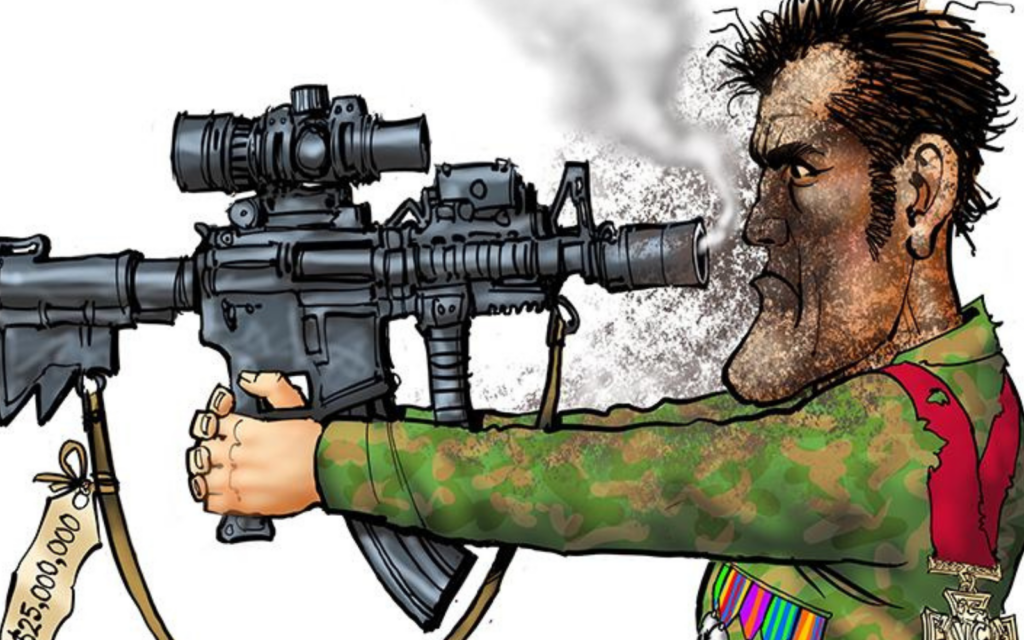An Official Selection and winner of the World Cinema Documentary Editing Award at Sundance 2012, Indie Game: The Movie follows four game developers through their journey as they create and release their treasured videogames – Edmund McMillen and programmer Tommy Refenes as they eagerly await the release of their two-years-in-the-making Super Meat Boy, Phil Fish who’s set to unveil the hotly anticipated Fez which has taken him four years, and Jonathan Blow, contemplating creating a new game after Braid, one of the highest rated games of all time.
First-time filmmaking duo behind the doco Lisane Pajot and James Swirsky say it was the individuality behind the games that attracted them to the concept in the first place. “Independent games are made by smaller teams – often one or two people, which really appealed to us,” James explains. “We looked around the landscape of the genre and we just kept seeing these really cool, unique games that just felt like they were doing something different. And when you look behind them oftentimes you’ll see that they’re insanely personal. They’re actually expressions of these people and reflections of themselves.”
“Also, we’re now in this wonderful age of digital distribution with all these really accessible marketplaces that didn’t exist four or five years ago. These guys are making really personal games and putting them out there – and if it’s the right game at the right time, it can really take off. That might not be the end goal, but their lives can be changed overnight.”
It’s plain to see that the personality behind an indie game is the attribute that ultimately connects it to an audience in a way that blockbuster games never could. However, the downside of this is that because the teams are so small, they’re almost forced to have a transparent presence online – blogging the status of their creation while it’s still in production and responding to Tweets and feedback from the public. This undoubtedly has its advantages, but it also exposes the designers and can put them in an incredibly vulnerable position. “Because that person is so accessible, when the public has an issue with them, the internet is the kind of place that can swing negative pretty easily,” James says.
“A lot of people don’t think twice about posting a whole bunch of stuff on a big game-developing company’s forums to bash their game. That’s kind of okay because there are people that are paid specifically to read the feedback and moderate forums. But when you do that to an independent developer, there’s so little separation. You’re pretty much sending an email that will pop up on their iPhone while they’re working on the game you’re complaining about. It can create a hell of a lot of pressure.”
It comes as a surprise then that the filmmakers barely experienced any backlash themselves. In fact, it was quite the opposite – the movie was backed by two Kickstarter campaigns, both of which were a huge success. “We managed to raise about 35-40% of our funds on Kickstarter,” James explains. “Even from day zero, we had a whole bunch of people that put money down for an imaginary movie that didn’t even exist yet. We did receive some ‘Hey where’s my movie?’ but it was mostly positive. The odd time you did get a complaint, it was amazing to see them do a 180 degree turn when you explained the situation to them.” Lisanne adds, “Having people giving money upfront, based on merely a short splice of a film meant so much to us and really built our confidence.”
But the filmmaking process was never going to be easy when you’re faced with subjects who are trapped in a world of stress and anxiety, compounded by impending deadlines and social media pressure. So James and Lisanne were understandably concerned at times. “It was hard to watch people struggle and go through really devastating moments,” Lisanne says. “As the filmmaker you have perspective, but when you’re in the moment and stuff is happening to the project you spent years on, it feels like the world is ending. You act irrationally and you lose objectivity. These guys put so much into their work and it was such a big part of their lives that you did worry about them at times.”
Most of us would be tempted to intervene, but as filmmakers they had to maintain professionalism and ensure they documented the story without altering it. “One of the things you worry about is changing a situation or making it worse,” James says. “You just want to be part of everything, document it and watch things unfold. You don’t ever want to be one of the wrinkles. On the flipside, after Super Meat Boy was released, Edmund told us that our presence helped keep his mind off the game and stopped him obsessing over Twitter and Facebook. He said we acted as a soundboard, allowing him to talk things out in a way he wouldn’t have done otherwise.”
Approaching the editing stage, Lisanne says the tricky part was trying to generate something that was relevant and ‘techy’ enough for an audience of gaming enthusiasts, while making it understandable for a broader audience.
“It was difficult making a film that represented this intense emotional journey, had enough context for a general audience to get a sense of this world, but also had enough ‘meat’ around it to satisfy gamers. Luckily a lot of gamers and developers have enjoyed it and like the fact that they can show it to their family and say, ‘Hey, this is why I like games.’ That’s the ultimate compliment for us.”
BY CALLUM FITZPATRICK







